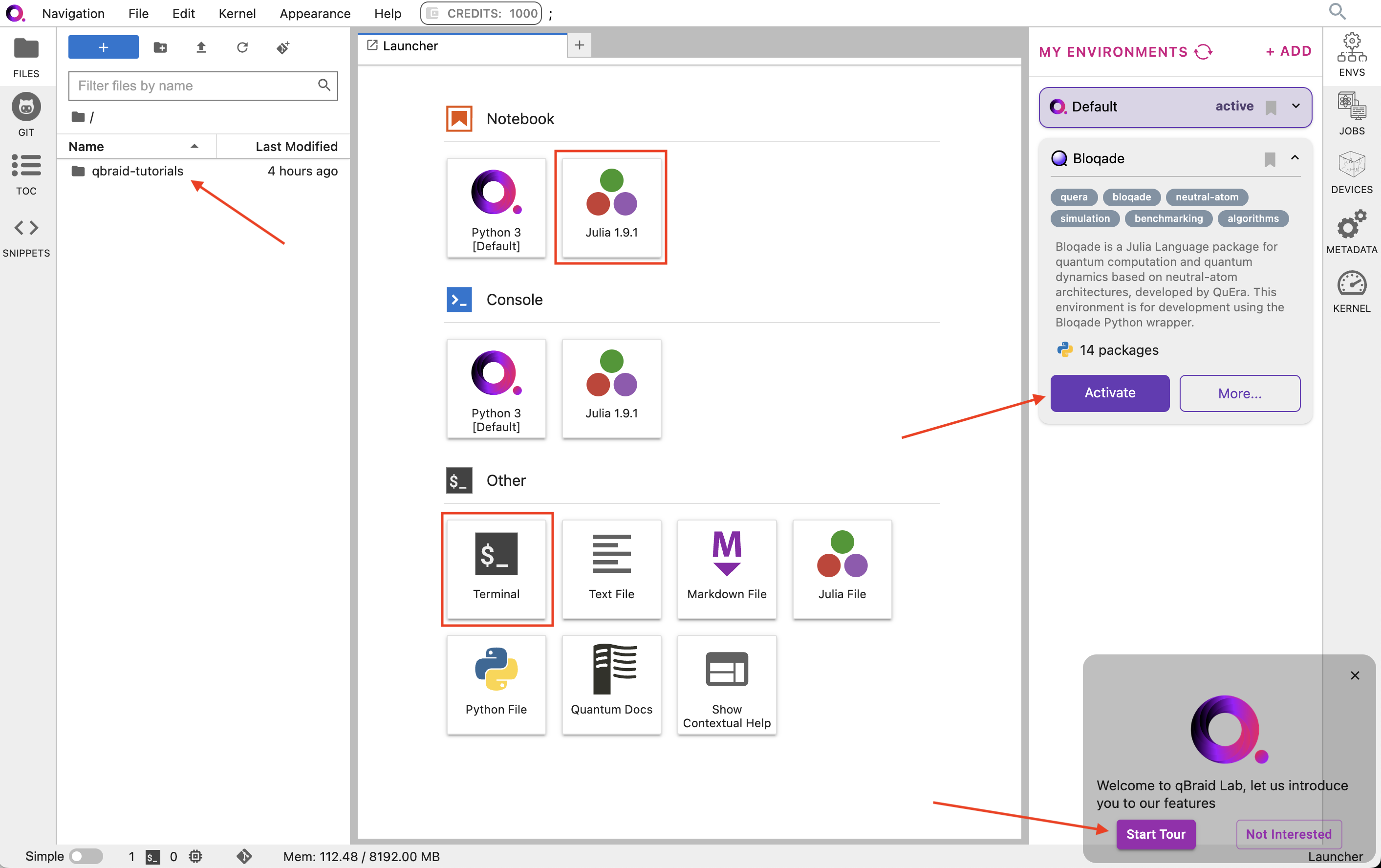Add and remove kernels
The IPython kernel is the Python execution backend for Jupyter. Under Environments, choose an environment, and expand its panel. Click Add kernel to create an ipykernel for the environment. This is a necessary step before running code in a Jupyter Notebook using a given environment. Once “active”, click Remove kernel to remove the environment’s ipykernel from the launcher.Julia
Julia is a high-performance, high-level programming language known for its ease of use and impressive computational capabilities, especially in numerical and scientific computing, machine learning, data science, and most recently, quantum computing! Julia is available on qBraid Lab with pre-configured IJulia notebooks, and with a number of quantum computing software packages pre-installed.Bloqade Lab Image
Bloqade is a Julia Language package developed for quantum computation and quantum simulation based on the neutral-atom architecture with the ability to submit tasks to QuEra’s Aquila quantum processor. Bloqade is available working out-of-the-box through qBraid Lab, is free-to-use, and requires little to no setup. For more, see Bloqade Lab Image.
Configuration
In qBraid Lab, theJULIA_DEPOT_PATH is set to /opt/.julia. This default setting means that any additional Julia packages installed will be
stored at the system level, and therefore will not persist between sessions. To persist additional packages, caches, configs, and other Julia
updates, they must be saved at the user level (e.g. /home/jovyan/.julia). This can be done by updating the depot path:
Troubleshooting
Julia kernel not connecting: If you are unable to connect to the Julia kernel, make sure that you do not have anyProject.toml or
Manifest.toml in your working directory, as these project dependencies may conflict with pre-installed packages and cause the kernel
to fail. If you are still having trouble, try restarting your session. If the problem continues to persist,
please contact us.
C++
C++ is a powerful and high-performance programming language, celebrated for its efficiency and precise control over system resources. On qBraid Lab, quantum software programs developed in C++ are executable both through the command-line, and through the interactivexeus-cling Jupyter kernel. This kernel, built on the robust C++ interpreter cling and the native implementation of the Jupyter
protocol xeus, facilitates interactive C++ programming directly within Jupyter notebooks.
Environments that support C++ software packages are marked with the c++ tag.
Intel® Quantum SDK
Intel Quantum SDK is a C++ based API that allows users to write software targeted for Intel quantum hardware. It is available as a pre-installed environment on qBraid Lab, and is free to access for all users. For more, see Intel Quantum SDK environment.
